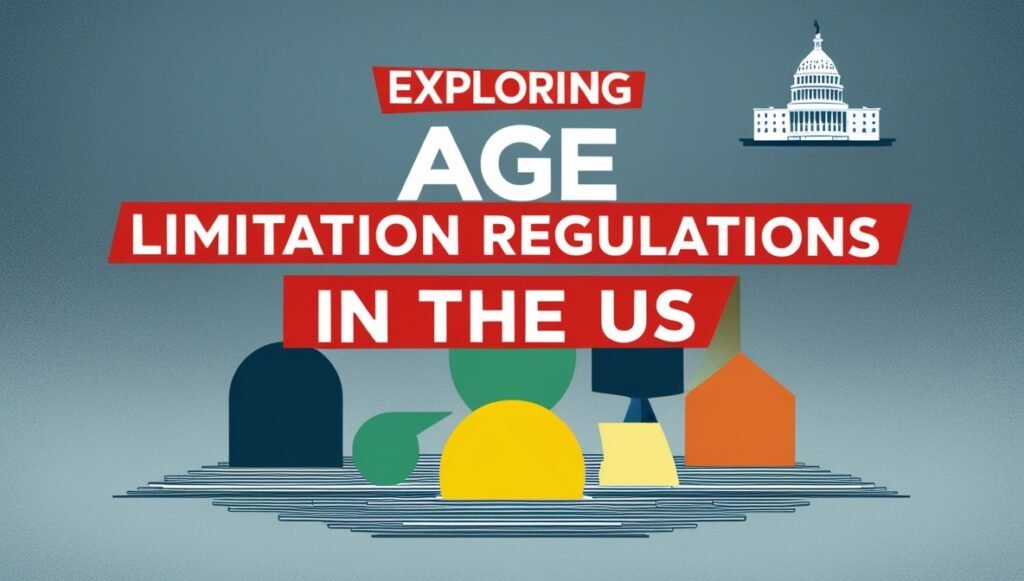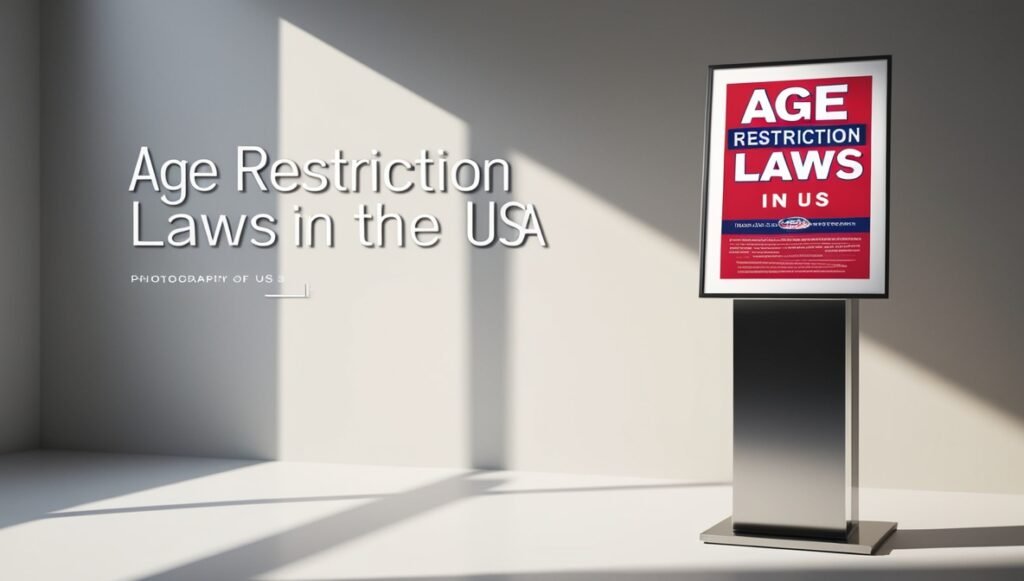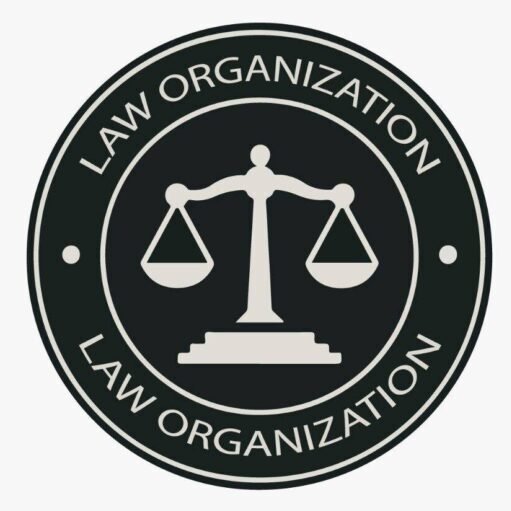Each and every individual has a certain age to perform certain things such as marriage, trying alcohol, tobacco, etc. There are certain restrictions on age and for that laws for emancipated minors are framed and implemented by the government of the US.
This is just for the safety and well-being of today’s youth in the society. These laws for emancipated minors and regulations specify the age limit of an individual or youth in which such activities can be performed.
Here in this article, we will discuss the age restriction laws in US, the penalties and punishments for not following them, and the awareness needed at every stage.
Laws And Regulations for Minors In the US
Liquor and Tobacco:
The legal drinking Age Restriction Laws In Us is 21 years old. This implies that people under this age are restricted from buying and polishing cocktails. In a similar vein, 21 is the legal age to purchase and use tobacco products. These regulations plan to decrease the mischief brought about by underage drinking and smoking, advancing better ways of life among youngsters.
Driving:
State-by-state, the minimum age for obtaining a full, unrestricted driver’s licence is typically 18 or 19 years old. Student grants and temporary licences are frequently accessible to more youthful people, permitting them to acquire driving experience under specific limitations prior to getting a full permit.
Voting:
In the US, residents gain the option to cast a ballot at 18 years old. This age limitation guarantees that people have arrived at an age where they can effectively partake in the popularity-based process and have something to do with their administration.
Marriage:
Age Restriction Laws In Us on marriage additionally fluctuate by state. While the lawful age to wed without parental assent is for the most part 18, a few states permit minors to wed with parental or court endorsement. The protection of young people and the prevention of early and forced marriage are the goals of these laws for minors.
Consent:
The period of assent for sexual action fluctuates from one state to another, commonly going from 16 to 18 years of age. It is fundamental to comprehend the time of assent regulations in your particular state to guarantee that all sexual connections are consensual and lawful.
Employment:
Child labour is regulated by the Fair Labor Standards Act, which ensures that children under the age of 16 are protected from hazardous work and that their education is not disrupted by their work. States may likewise have their own work regulations with age limitations on particular sorts of business.
Military Help:
The base age to enroll in the U.S. military is 17 with parental assent or 18 without it. Young adults can make educated decisions about military service and the responsibilities that come with it thanks to this age restriction.
Criminal Obligation:
The time of criminal obligation in the US shifts by state yet for the most part goes from 7 to 18 years of age. People underneath this age are ordinarily not arraigned in grown-up criminal courts and might be dependent upon elective mediations focused on recovery.
Education:
Obligatory training regulations in the US expect kids to go to class, ordinarily from ages 5 to 18. These regulations guarantee that youngsters get fundamental schooling and foster fundamental abilities for their future.
Exploring Age Limitation Regulations in the US: Government vs State Guidelines

Age Restriction Laws In Us and limitation regulations are a perplexing exchange of government and state guidelines. Understanding the connection between these degrees of government is critical to appreciating how these regulations are organized and implemented.
Government Structure:
At the government level, there are a few key age limitation regulations that apply consistently across all states. State regulations are built on top of these federal laws for minors as a foundation. Here are a few models:
Lawful Drinking Age: The most notable government age limitation regulation is the legitimate drinking age, which is set at 21 years of age across the country. This regulation, known as the Public Least Drinking Age Demonstration of 1984, keeps government roadway assets from states that don’t consent. As a result, the drinking age of 21 has been adopted by all 50 states and the District of Columbia.
Tobacco Age: In December 2019, the national government passed a regulation raising the base age to buy tobacco items, including cigarettes and vaping items, to 21. Once more, this gives a uniform norm to the nation.
Period of Larger part: The age at which an individual is viewed as a grown-up and has full legitimate freedoms (like marking contracts without parental assent) is regularly 18, as laid out by government regulation.
State-Level Regulations:
While government age limitation regulations make a gauge, individual states have critical independence to order their own age-related guidelines. This is because of the standards of federalism, which expresses the position to administer in regions not unequivocally tended to by government regulation. As a consequence of this, age-related laws for minors like:
Age for Driving: Although many states set the base age for a full driver’s permit at 18, some permit people as young as 16 to get one. These variations are the result of decisions made at the state level regarding the age at which young people are mature enough to drive without certain restrictions.
Marriage Age: Each state sets its own base age for marriage, frequently with exemptions for minors with parental or legal assent. This has prompted contrasts in marriage age prerequisites the nation over.
Period of Assent: The age at which an individual can legitimately take part in sexual action changes from one state to another, ordinarily going from 16 to 18. States decide this in view of their own lawful codes.
Work Age Limitations: While government work regulations lay out specific ages for business (e.g., 14 for most non-horticultural work), states have the position to set stricter guidelines or extra guidelines for youthful specialists.
Tensions and Interplay:
The connection between government and states age restriction laws in us can now and again prompt strains and discussions. States might challenge government regulations or guidelines they see as encroaching on their privileges. On the other hand, government specialists might push for consistency in specific regions, for example, the legitimate drinking age, to address general well-being concerns
Punishments For Abusing Age Restriction laws in US

Disregarding age limitation regulations in the US can have critical results, going from fines to local area administration and that’s only the tip of the iceberg. These penalties are in place to discourage lawbreakers and encourage responsible behaviour. Here is an outline of the likely repercussions:
- Fines:
Infractions of age restriction laws for minors frequently result in fines. How much the fine can change is contingent upon the particular regulation and the purview. For instance, businesses and individuals can face fines ranging from hundreds to thousands of dollars for selling alcohol or tobacco to minors.
- Seizure of Things:
In situations where age-confined things are involved, like liquor, tobacco, or even specific grown-up materials, these things might be seized by policing. For instance, alcohol may be confiscated and discarded if an emancipated minor is found in possession of it.
- Local area Administration:
Notwithstanding fines, people who abuse age limitation regulations might be expected to perform local area administration as a feature of their punishment. This help frequently includes contributing time and work to local area undertakings or associations. The quantity of hours required can change contingent on the nature and seriousness of the offence.
- Instruction Projects:
Participation in educational programs may be required for those who break age restriction laws for minors. These projects plan to bring issues to light about the dangers related to specific exercises and empower capable ways of behaving. For instance, a minor discovered drinking liquor might be expected to go to liquor schooling classes.
- Legitimate Records:
Specific age-related infringement can bring about a legitimate record. For instance, in the event that a minor is accused of underage drinking, it could show up on their lawbreaker record, possibly influencing future instruction and work potential open doors.
- Permit Suspensions:
Organisations that disregard age limitation regulations, like offering liquor or tobacco to minors, may have to deal with damages that incorporate the suspension or repudiation of their working licences. This can have critical monetary and functional ramifications for organisations.
- Criminal Accusations:
In additional serious cases, people who abuse age limitation regulations might have to deal with criminal penalties. For instance, grown-ups taking part in sexual movements with minors can be accused of legally defined sexual assault, which can prompt detainment and consideration in sex wrongdoer libraries.
- Responsibilities of Parents:
In cases including minors, guardians or gatekeepers may likewise be considered dependable. For instance, parents who provide or permit access to alcohol for a minor could be held liable in court if the minor is found with it.
- Common Claims:
Now and again, people who abuse age limitation regulations may likewise be dependent upon common claims. For example, in the event that a minor drinks liquor and hurts others, the harmed parties or their families might record claims looking for harm.
It means quite a bit to take note that the particular punishments for disregarding age limitation regulations can change contingent upon elements like the purview, the idea of the offence, and whether it’s a first-time or rehash infringement.
For individuals of all ages to avoid these consequences and contribute to a safer and more responsible society, it is essential to understand and respect these laws for minors.
Conclusion
Age Restriction Laws In Us, limitation regulations are a foundation of the general set of laws for minors, tending to different parts of life, from liquor and tobacco utilisation to driving, casting a ballot, and marriage, and that’s just the beginning.
They mirror the qualities and needs of society, looking to safeguard people while allowing them freedoms as well as certain limitations at the fitting phases of life. Understanding and consenting to these regulations is fundamental for a legal and dependable life in the US. These laws for minors change with society, adjusting to new needs and perspectives while still protecting the welfare of all citizens.
For more informative content visit our website and blog section now.



![Read more about the article Film Pornography Laws – Regulations and Legal Boundaries [2025]](https://pornography-laws.com/wp-content/uploads/2025/02/Leonardo_Phoenix_09_A_professionallooking_feature_image_with_a_0-300x170.jpg)
